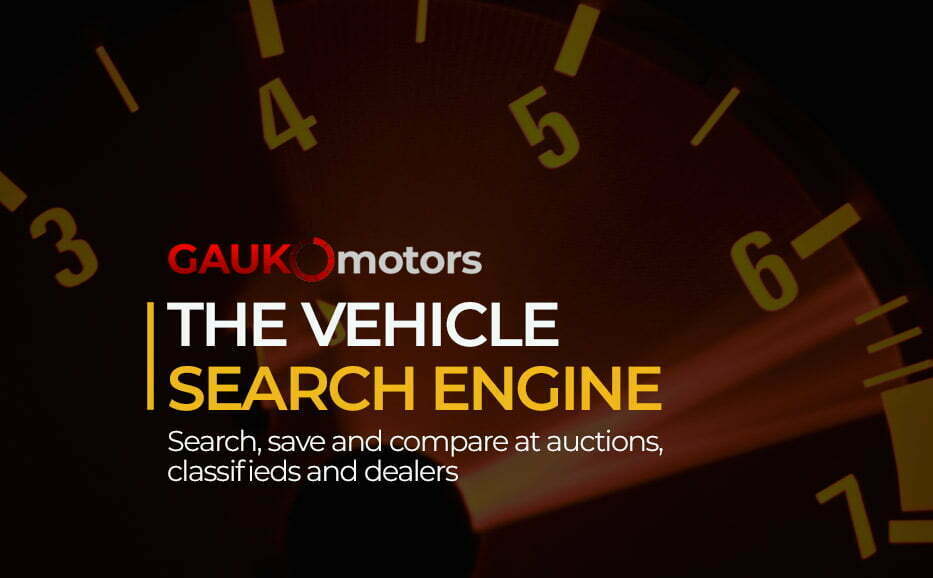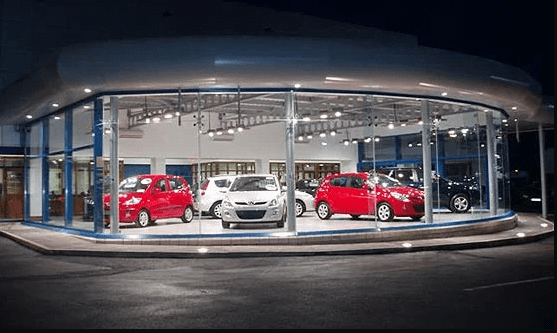Understanding Classic Car Appreciation: Preserving Value and Maximizing Returns
Discover the Key Factors and Strategies for Classic Car Appreciation in Today’s Market
Classic cars have long been admired for their timeless beauty, historical significance, and the potential for appreciation as valuable assets. In this comprehensive guide, we delve into the world of classic car appreciation and provide essential insights to help you navigate the market successfully. Whether you’re a seasoned collector or a passionate enthusiast, understanding the key factors and implementing effective strategies can make a significant difference in unlocking the true value of classic automobiles.
Rarity and Exclusivity:
One of the primary drivers of classic car appreciation is rarity and exclusivity. Limited production numbers, unique features, or special editions significantly impact a car’s value. Collectors and investors seek out rare models, making them highly desirable and resistant to rapid depreciation.
When it comes to classic cars, rarity and exclusivity are two crucial factors that significantly influence market demand and value appreciation. Collectors and enthusiasts are often drawn to vehicles that are scarce, unique, and offer a sense of exclusivity. In this section, we delve into the importance of rarity and exclusivity in the world of classic cars.
Limited Production Numbers: Classic cars with limited production numbers hold a special allure among collectors. Vehicles that were produced in small quantities during their original production run tend to be highly sought after. The scarcity created by limited production adds an element of exclusivity, driving up their desirability and value. Examples of such cars include the Aston Martin DB4 GT Zagato, with only 19 units ever built, or the Ferrari 250 GTO, known for its extremely limited production of just 36 units. Rarity in production numbers often translates to higher demand and appreciation in the classic car market.
Special Editions and Unique Features: Special editions and unique features contribute to the exclusivity of classic cars. Manufacturers occasionally release limited-edition models or add distinctive features to certain vehicles, making them stand out from the regular production lineup. These special editions often incorporate exclusive color schemes, upgraded performance enhancements, or bespoke interior appointments. Classic cars with such special editions or unique features are highly coveted by collectors who seek that extra level of exclusivity and individuality in their automotive treasures.
Custom Coachwork and Bespoke Creations: Classic cars that feature custom coachwork or were created as bespoke commissions are highly prized for their exclusivity. These vehicles represent the collaboration between renowned coachbuilders and discerning clients who desired a one-of-a-kind automobile. Examples include coachbuilt classics like the Rolls-Royce Phantom III by Park Ward or the Bugatti Type 57SC Atlantic, with its iconic aerodynamic design by Jean Bugatti. The craftsmanship and exclusivity of these custom-built creations elevate their desirability among collectors and enthusiasts.
Historic Significance and Provenance: The historical significance and provenance of a classic car can greatly impact its rarity and exclusivity. Vehicles with notable ownership history, association with famous personalities, or participation in significant events often command higher market demand. For instance, classic cars that have raced in renowned motorsport events like Le Mans or have been owned by iconic figures such as Steve McQueen or Enzo Ferrari carry a certain cachet that appeals to collectors seeking a piece of automotive history. The documented provenance and historical context of a classic car contribute to its rarity and exclusivity.
Unrestored and Original Condition: Classic cars in original, unrestored condition are considered rare gems in the market. While some collectors prefer fully restored vehicles, others value the authenticity and originality of a car that has survived the years with its original paint, interior, and mechanical components intact. These unrestored examples showcase the vehicle’s true character and often have a unique patina that cannot be replicated. Collectors with an appreciation for originality are willing to pay a premium for such rare, untouched specimens, enhancing their exclusivity within the classic car market.
Limited Availability in the Market: The limited availability of certain classic cars further contributes to their exclusivity. As time passes, some models become increasingly scarce as they are lost to accidents, neglect, or the ravages of time. The dwindling supply of specific classic cars can drive up their demand, leading to increased appreciation in value. Collectors keen on acquiring these rare gems understand the exclusivity they represent and are willing to invest to own a piece of automotive history that few others possess.
In conclusion, rarity and exclusivity are integral to the world of classic cars. Limited production numbers, special editions, and unique features.
Historical Significance and Provenance:
Classic cars with a rich historical background or connection to iconic moments command higher appreciation. Vehicles linked to famous personalities, historic events, or significant milestones hold a special place in the hearts of collectors, creating a demand that fuels appreciation over time.
Elevating the Appeal of Classic Cars
In the realm of classic cars, historical significance and provenance hold immense importance in shaping their market demand and desirability. These factors not only contribute to the overall story and aura surrounding a vehicle but also add a layer of exclusivity and prestige. In this section, we delve into the significance of historical provenance and how it can elevate the appeal of classic cars.
Association with Famous Figures: Classic cars that have been owned or driven by famous personalities often hold a special allure for collectors. The connection to renowned individuals from the worlds of entertainment, sports, or industry adds a layer of glamour and intrigue. Whether it’s a vehicle once owned by a Hollywood icon like James Dean or a car driven by a Formula 1 legend like Ayrton Senna, the historical association with such figures elevates the car’s significance and increases its desirability. Collectors are willing to pay a premium for classic cars that possess a direct link to iconic personalities, as these vehicles become cherished artifacts of their legacies.
Participation in Significant Events: Classic cars that have participated in significant events or achieved notable milestones hold a special place in automotive history. Vehicles that have raced in prestigious motorsport competitions like Le Mans, Monaco Grand Prix, or the Indianapolis 500 carry an inherent historical significance. Their track records, victories, and memorable moments contribute to their provenance and enhance their value in the eyes of enthusiasts. Classic cars that can boast an authentic racing heritage often become sought-after treasures, as they embody the spirit of competition and evoke the excitement of motorsport history.
Documented Ownership and Maintenance History: The provenance of a classic car is greatly enhanced by a well-documented ownership and maintenance history. Detailed records, including ownership transfers, maintenance invoices, and restoration documentation, provide a comprehensive account of the car’s journey through time. These records not only authenticate the car’s origins and historical significance but also serve as a testament to the care and attention it has received over the years. Classic cars with thorough and verifiable provenance inspire confidence in buyers, as they can trace the vehicle’s lineage and ensure its authenticity.
Signature Models and Milestone Vehicles: Certain classic cars hold historical significance by virtue of being signature models or representing important milestones for their respective manufacturers. These vehicles often mark a turning point in automotive design, engineering, or innovation. Examples include the Mercedes-Benz 300SL “Gullwing,” which introduced groundbreaking features like fuel injection and the iconic upward-opening doors, or the Ford Model T, which revolutionized mass production and automobile accessibility. Classic cars that represent pioneering advancements or define an era become highly coveted by collectors who value their place in automotive history.
Commemorative Editions and Limited-Run Variants: Manufacturers occasionally release commemorative editions or limited-run variants of their iconic models to celebrate milestones or pay homage to historical achievements. These special editions often feature unique badging, exclusive color schemes, and enhanced performance features. Classic cars with such limited-production, commemorative editions embody the spirit of a particular era or commemorate significant moments in the manufacturer’s history. Their exclusivity and connection to specific milestones make them highly sought after by collectors who seek to own a piece of automotive heritage.
Cultural and Historical Context: Classic cars that hold cultural and historical significance within a specific period or geographic region attract enthusiasts with an appreciation for contextual storytelling. Vehicles associated with a particular cultural movement, social revolution, or historical event capture the essence of a bygone era. For example, classic cars from the 1960s often evoke the spirit of freedom and rebellion synonymous with the counterculture movement of that time. Understanding the cultural and historical context surrounding a classic car enhances its appeal and makes it more than just a vehicle but a symbol of a specific moment in history.
In summary, historical significance and provenance lend a captivating narrative to classic cars. The association with famous figures, participation in significant events, well-documented ownership and maintenance history, signature models and milestone vehicles, commemorative editions, and the cultural and historical context surrounding a car all contribute to its allure. Collectors and enthusiasts place immense value on classic cars with rich provenance, as they represent tangible connections to the past and embody the essence of automotive history.
Originality and Authenticity:
Maintaining a classic car’s originality is crucial for maximizing appreciation potential. Collectors value vehicles with authentic parts, components, and features that reflect the car’s original design. Originality enhances a car’s desirability and long-term value.
Condition and Quality of Restoration:
The condition and quality of a classic car’s restoration greatly impact its appreciation potential. Meticulous restorations that adhere to original specifications and utilize high-quality craftsmanship ensure the preservation of value. Well-documented restoration records provide transparency and instill confidence in buyers and collectors.
Market Demand and Trends:
Understanding market demand and staying informed about current trends are vital for classic car appreciation. Identifying popular eras, models, and emerging trends allows collectors to invest wisely, as cars aligned with market preferences tend to appreciate more consistently.
When it comes to classic cars, market demand and trends play a crucial role in determining their value and appreciation potential. By staying informed about current market dynamics, collectors and enthusiasts can make informed decisions and capitalize on emerging opportunities. In this section, we explore the key aspects of understanding market demand and trends in the world of classic cars.
Identifying Popular Eras and Models: To gauge market demand, it is essential to identify the eras and models that are highly sought after by collectors. Certain periods, such as the 1950s and 1960s, are known for their iconic designs and legendary automobiles. Models like the Ford Mustang, Chevrolet Corvette, and Porsche 911 have consistently remained popular among enthusiasts, contributing to their sustained appreciation. By studying historical sales data, attending classic car shows, and engaging with fellow collectors, you can gain insights into the models that hold significant market appeal.
Emerging Trends and Niche Markets: Classic car market trends are constantly evolving, with emerging niches capturing the attention of collectors. Keeping a finger on the pulse of these trends can help identify potential investment opportunities. For example, the growing interest in vintage Japanese sports cars or the increasing demand for European classics from the 1980s and 1990s indicates shifting preferences within the market. By staying informed through publications, online forums, and specialized classic car events, you can spot emerging trends and act accordingly.
Limited Production and Special Editions: Limited production runs and special editions have a significant impact on market demand. Cars with unique features, rare options, or limited availability tend to attract collectors seeking exclusivity. For instance, limited-edition models like the Mercedes-Benz 300SL Gullwing or the Lamborghini Countach LP400 “Periscopio” hold substantial appeal due to their scarcity and iconic status. Understanding the significance of these special editions and their influence on market demand can guide your investment decisions.
Popularity in the Motorsport World: The connection between classic cars and motorsport adds another dimension to market demand. Vehicles associated with racing heritage or notable victories often command higher value and appreciation. The popularity of classic racing events like the Goodwood Revival or historic rallies contributes to the desirability of cars with racing pedigrees. Collectors and enthusiasts are often willing to pay a premium for classic cars with a competitive history, as these vehicles hold a special place in the hearts of racing enthusiasts.
Shifts in Cultural and Social Preferences: Cultural and social factors also influence market demand for classic cars. As societal tastes evolve, certain models or styles may experience fluctuations in popularity. For example, the growing interest in eco-friendly vehicles has led to increased appreciation for electric classic cars or hybrid conversions of vintage models. Similarly, the influence of popular culture, such as movies, music, and fashion, can spark renewed interest in specific eras or iconic cars associated with influential personalities or cinematic moments.
International Market Dynamics: The classic car market is not confined to a single country but has a global reach. Understanding international market dynamics is essential for assessing demand and identifying potential buyers or sellers. Certain models may be more popular in specific regions due to cultural preferences or historical significance. Monitoring international auctions, exhibitions, and online platforms can provide valuable insights into the dynamics of the global classic car market.
In conclusion, staying abreast of market demand and trends is crucial for making informed decisions in the classic car world. By identifying popular eras and models, tracking emerging trends, recognizing the value of limited production and special editions, considering motorsport heritage, and understanding cultural shifts, collectors and enthusiasts can navigate the market effectively. Remember to conduct thorough research, consult experts, and engage with the classic car community to stay ahead.
Documentation and Maintenance History:
Maintaining comprehensive documentation, including service records, ownership history, and provenance, adds value to classic cars. Buyers and collectors appreciate well-documented vehicles, as they provide a clear picture of the car’s authenticity, maintenance, and care throughout its lifetime.
Brand Reputation and Legacy:
The reputation and legacy of the brand behind a classic car influence its appreciation potential. Established brands with a history of producing exceptional vehicles, known for their performance, craftsmanship, and desirability, tend to appreciate more steadily over time.
The Timeless Appeal of Classic Cars
Brand reputation and legacy play a significant role in shaping the demand and desirability of classic cars. Established automotive brands with a storied history and a legacy of craftsmanship tend to captivate collectors and enthusiasts. In this section, we explore how brand reputation and legacy contribute to the timeless appeal of classic cars.
Heritage and Tradition: Classic cars from renowned brands often carry a rich heritage and tradition that spans decades or even a century. Manufacturers like Ferrari, Aston Martin, Rolls-Royce, and Porsche have built a reputation for producing exceptional vehicles that embody luxury, performance, and engineering excellence. The longevity and consistent quality of these brands create a sense of trust and admiration among collectors. Owning a classic car from a brand with a strong heritage allows enthusiasts to connect with the brand’s legacy and become part of a lineage of automotive excellence.
Design Language and Styling: Certain brands have established a distinct design language and iconic styling cues that have become synonymous with their name. Classic cars from these brands exhibit timeless design elements that continue to inspire and influence the automotive industry. For instance, the graceful curves of a Jaguar E-Type or the bold and aggressive lines of a Chevrolet Corvette showcase the brand’s design philosophy and evoke a sense of nostalgia. Classic cars with iconic styling have a lasting appeal that transcends time, making them highly sought after by collectors and enthusiasts.
Engineering Innovation: Pioneering engineering innovation has been a hallmark of many renowned automotive brands. Classic cars that introduced groundbreaking technologies, performance enhancements, or engineering marvels hold a special place in automotive history. Examples include the Mercedes-Benz 300SL with its revolutionary fuel injection system and gullwing doors, or the Porsche 911 with its rear-engine layout and exceptional handling characteristics. Classic cars from brands known for their engineering prowess attract enthusiasts who appreciate the innovative spirit and technical achievements associated with these vehicles.
Racing Heritage and Success: The success of a brand in motorsport can significantly enhance its reputation and desirability. Classic cars that have a strong racing heritage and have achieved notable victories on the track are highly coveted by collectors. Brands like Ferrari, Porsche, and Aston Martin have a rich racing pedigree, with numerous wins in prestigious competitions like Le Mans, Formula 1, and endurance races. Classic cars associated with these victories carry the spirit of competition and embody the brand’s commitment to performance and excellence, making them highly sought after in the market.
Limited Production and Special Editions: Automotive brands occasionally release limited-production models or special editions that showcase their commitment to exclusivity and craftsmanship. These rare and unique classic cars, often featuring bespoke features, upgraded performance, or unique styling elements, command attention and become prized possessions for collectors. Limited production runs or special editions create a sense of exclusivity and rarity, adding to the desirability of these classic cars. Collectors value the opportunity to own a piece of automotive history that represents the brand’s dedication to creating exceptional and collectible vehicles.
Longevity and Legacy: Brands that have stood the test of time and have continued to innovate and evolve over the years leave a lasting impact on the automotive industry. Classic cars from these brands embody a sense of enduring quality and craftsmanship that has endured through generations. The longevity of a brand and its ability to adapt to changing times and technologies speak volumes about its reputation and legacy. Classic cars from such brands hold a special place in the hearts of enthusiasts, as they represent a lasting testament to the brand’s enduring legacy.
In conclusion, brand reputation and legacy significantly influence the appeal of classic cars. The heritage and tradition associated with renowned brands, distinctive design language and styling, engineering innovation, racing heritage and success, limited production and special editions, as well as the longevity and legacy of a brand, all contribute to the allure and desirability of classic cars. Collectors and enthusiasts are drawn to these vehicles not just for their aesthetic beauty and performance but also for the intangible value that comes from owning a piece of automotive history and becoming part of a brand’s enduring legacy.
Economic Factors and Market Stability:
Economic conditions and market stability can impact classic car appreciation rates. Monitoring economic indicators, inflation rates, and market trends can help predict potential risks and identify favorable investment opportunities.
The Pragmatic Side of Classic Car Appreciation
While the emotional appeal and intrinsic value of classic cars are undeniable, economic factors and market stability also play a crucial role in determining their appreciation potential. In this section, we delve into the practical aspects of classic car appreciation and explore how economic factors and market stability can influence the value of these cherished vehicles.
Economic Conditions: The overall economic climate, including factors such as interest rates, inflation, and GDP growth, can have a significant impact on the classic car market. During periods of economic prosperity and stability, collectors and enthusiasts may have more disposable income to invest in luxury items like classic cars, driving up demand and potentially increasing prices. On the other hand, during economic downturns or uncertain times, the classic car market may experience a slowdown as buyers exercise caution and prioritize essential expenses. Monitoring economic indicators and understanding their impact on the market can provide valuable insights for collectors and investors looking to make informed decisions.
Supply and Demand Dynamics: The principle of supply and demand applies to the classic car market just as it does to any other asset class. The rarity and scarcity of certain models can significantly impact their value. Classic cars that were produced in limited numbers, have unique features, or belong to a highly sought-after marque are more likely to experience appreciation in value due to their exclusivity. Conversely, vehicles that were mass-produced or lack distinctive attributes may have more stable or slower appreciation rates. Understanding the supply and demand dynamics specific to each model and brand can help collectors identify potential investment opportunities.
Market Trends and Collector Preferences: Classic car market trends and shifts in collector preferences can also influence appreciation rates. Certain eras, styles, and models may experience fluctuations in popularity over time. For example, there has been a growing interest in vintage European sports cars from the 1960s and 1970s in recent years, leading to increased demand and appreciation for models like the Porsche 911 and Ferrari Dino. Keeping a pulse on market trends, attending auctions, and engaging with fellow enthusiasts and experts can provide valuable insights into emerging trends and help collectors make informed decisions.
Condition and Authenticity: The condition and authenticity of a classic car are crucial factors that impact its value. Vehicles that have been well-maintained, restored to their original specifications using authentic parts, and have a documented history tend to command higher prices. Collectors and investors value originality and authenticity, as these factors contribute to the historical significance and provenance of the vehicle. Investing in classic cars with impeccable condition and solid documentation can provide greater assurance of long-term appreciation potential.
Collector Community and Networking: The classic car community plays a vital role in shaping the market and facilitating transactions. Networking with fellow collectors, attending car shows, and joining enthusiast clubs and forums can provide valuable insights and access to rare and desirable vehicles. Engaging with the collector community allows enthusiasts to stay informed about market trends, connect with sellers and buyers, and learn from experienced collectors. Building relationships within the community can enhance opportunities to acquire and trade classic cars with good investment potential.
Professional Appraisals and Expert Advice: Seeking professional appraisals and expert advice is essential when considering classic car investments. Professional appraisers and experts can provide objective evaluations of a vehicle’s condition, provenance, and market value. Their insights and expertise can help collectors make informed decisions based on comprehensive market analysis and historical data. Consulting with experts can mitigate the risks associated with classic car investments and provide a clearer understanding of the potential appreciation and long-term value of specific models.
In conclusion, while the emotional allure of classic cars is undeniable, considering economic factors and market stability is crucial for making informed investment decisions. Understanding the impact of economic conditions, supply and demand dynamics, market trends, vehicle condition, and expert advice can help collectors and investors navigate the classic car market and identify models with strong appreciation potential. Balancing passion with pragmatism is the key to successful classic car appreciation and investment.
Collector’s Passion and Emotional Connection:
Passion and emotional connections play a significant role in classic car appreciation. The emotional attachment collectors have towards certain models, eras, or brands fuels demand and sustains appreciation. Cars that evoke nostalgia and connect with collectors on a deeper level tend to appreciate more resiliently.
Professional Guidance and Networking:
Seeking professional guidance from experienced collectors, appraisers, and automotive experts can provide valuable insights into the world of classic car appreciation. Building networks within the classic car community allows for knowledge-sharing, access to exclusive opportunities, and a deeper understanding of the market dynamics.
Conclusion: Classic car appreciation is a fascinating journey that combines passion, history, and investment potential. By understanding the key factors influencing classic car appreciation and implementing effective strategies, collectors and enthusiasts can preserve value and maximize returns. Remember to focus on rarity, historical significance, originality, and market trends while seeking professional guidance. Embrace the world of classic cars and embark on a thrilling adventure filled with beauty, nostalgia, and the promise of appreciation.

MORE VEHICLES
GAUK has developed powerful aggregation software that is monitored by real, live humans and only sources clean data.AUCTIONS
Search ALL vehicles coming up for auction at the country’s leading sale rooms.CLASSIFIEDS
Each day we gather up-to-the-minute information from multiple car classifieds websites across the internetDEALERS
Search, save and compare car dealer vehicles across the entire UK.
Joel Marchant





